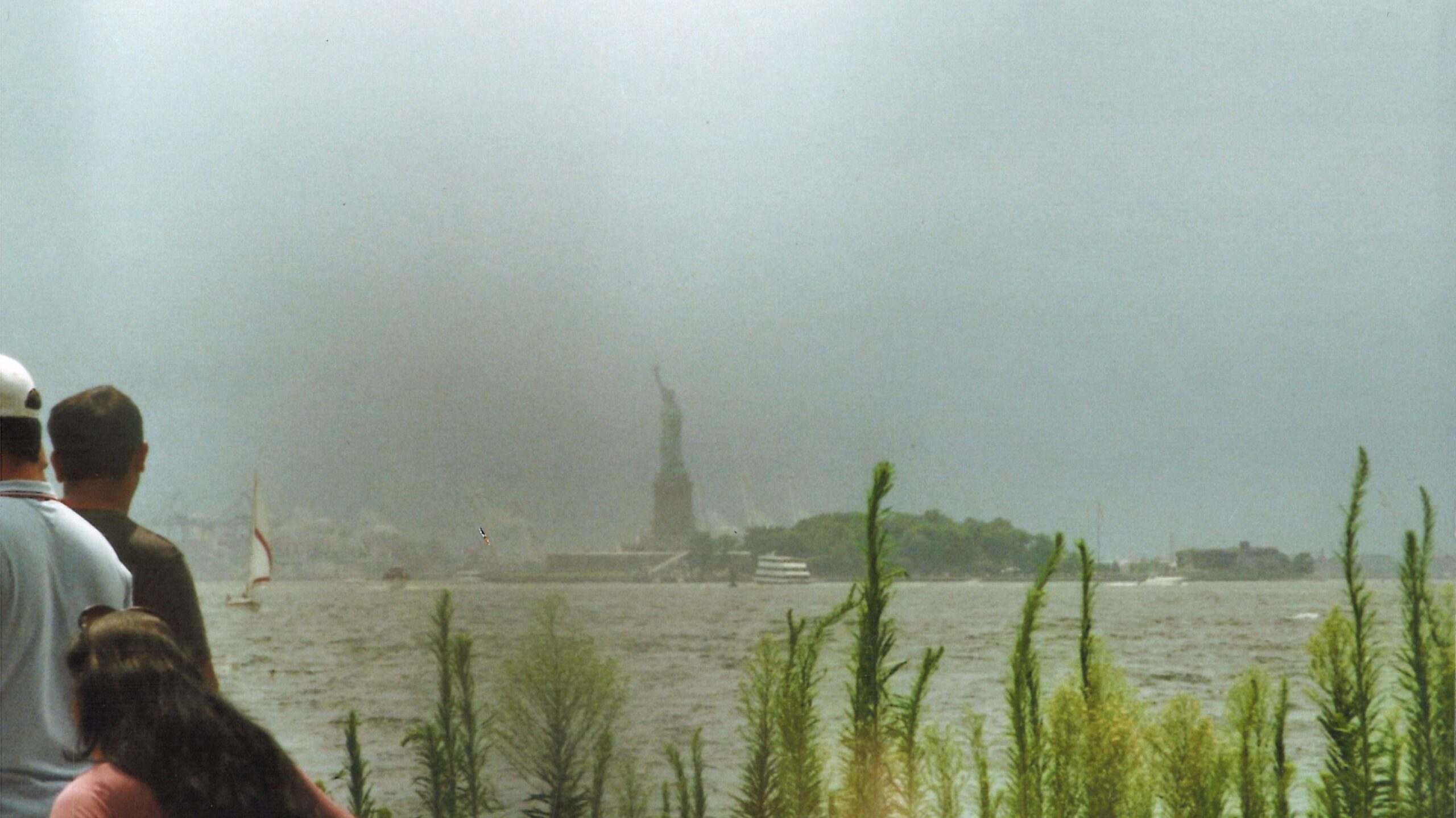Here or Elsewhere
–
23 February, 2025Barbara Seiler Galerie is pleased to present Here and Elsewhere, the second solo exhibition by Japanese artist Tenki Hiramatsu (b. 1986, Wakayama, JP) with the gallery. This exhibition brings together a new body of work that reflects Hiramatsu’s introspective approach to painting, where abstraction and figuration coexist in layers of shifting focus and narratives suspended in mystery.
Therefore, three salons as models of small societies discussing, exchanging, laughing, and contradicting each other through space and time. It’s about painting, how to get into it, this surface where one can stop, these layers one can dive into if desired, and how to get out of there. About the banality of looking at an apple, of the motif that takes shape, of the associations that are created, of the infinite web of references that is knitted, of the historicity that is linked, of the worlds that are colliding (!) … Or, of the simplicity that can lead to a decision, of the subconscious at work, and of the acceptance of every gesture, every thought, as an echo of another’s, as a twig brought back to the Babylonian termite mound of cultural history.
So I look. On Michiel Ceulers‘ zebra sofa lies the leaflet of a Marcel Duchamp’s retrospective exhibition, featuring a coat hook. A weird, spidery object that turns into a coat rack to become a Large Vehicle on which are hung the attributes of the great traveler: bag and umbrella, coat, scarf, and black and white checkered hat.
This motif jumps to another frame and becomes the liquid, distressing content of preference of any anxious person wanting to refer to South German painting (but also to that of Frankfurt or Cologne, or Düsseldorf! Because, as is well known, Nur Deutsche können malen).
And next, the black and white checks parasitize another canvas, becoming The motif of an Emotional Metabolism. It’s not the issue of transition from figurative to abstract that’s puzzling, but rather the shape of this canvas, which is reminiscent of the one with the coat rack: the angles have slightly shifted, like the recollection of the plan of a place, which we can’t remember whether we visited it or were told about it. This might be the way motifs and references operate in Michiel Ceulers‘ work, like a chessboard on which micro-narratives move freely, playing the same part as quotes, without distinction of any kind. Kermit the frog meets Martin Kippenberger, who meets the Pink Panther, who meets Gertrud Stein, who meets Bacchus, who meets the Ugly Duckling, who meets Love to the sound of „Eine Rose Blüht in Colorado“. But they all live under the reign of the Yellow Canary because, despite its fragile appearance, Yellow Canary foretells future catastrophes.
And then they are these supports that are surfaces. These screwed, glued, scotch taped supports, which can even be toilet seat covers, revealing expeditions worthy of a compulsive squirrel, and indifference to posterity (one must turn Ceulers‘ canvases over to start considering the perplexity of the collector trying to hang them, and an exhibition could be held by just showing the back of his paintings). Regarding the surfaces, they demonstrate a love of materiality that borders on excess: they are kneaded, if not mistreated, the motifs are dragged, washed out, dirtied, the texture is so thick that one could sink into it.
The same goes for the titles confirming that both language and languages will be used in all their possibilities to tell stories, connecting concepts and analyses, dialects and literature, wordplay and figures of speech.
So much profusion in this continuous series, where each form, each word, each character leads to the next, and if one can at times fear the burying, lightness can also be paradoxically felt.
The ease of playing, the humor of someone for whom everything is motif, everything is valid, everything is culture and who doesn’t bother with obedience. Ceulers gives himself the right to his very particular perspective and does so with a gentle irreverence, which isn’t there to prove anything, but just for the pleasure of it.
A political attitude, if ever there was one, that doesn’t care about genres and qualifications (or quantifications) and lets itself drift to the whim of its thoughts, to the whim of its fingers, to the whim of its curiosity.
Annaïk Lou Pitteloud, Brussels, September 2024












